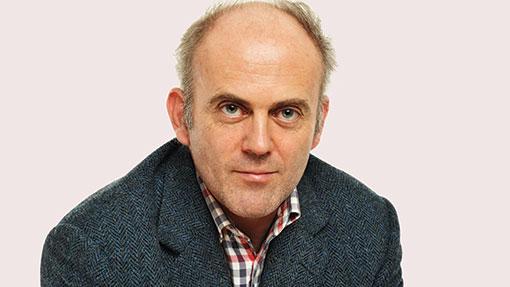OPINION: Farmers left counting cost of bovine TB

As the survivors of my herd escape movement restrictions after two clear consecutive rolling 60-day bTB tests, I am left to contemplate Owen Paterson’s announcement that the coalition’s badger cull will not be rolled out beyond the two pilot counties of Somerset and Gloucestershire.
In my latest brush with bTB, a quarter of my beef breeding cows have been slaughtered (including half my pedigree Sussex herd), my staff’s morale has been dented and the timeliness of my farmwork has been affected by the thankless task of gathering and testing cattle.
But even with the English cull now effectively stalled, nothing will stop the propaganda war for the hearts and minds of the great British public over whether badger culling is justified as a means of controlling bTB in cattle. The latest skirmish, in which badger protectionists have claimed a victory, centres around a report on the Republic of Ireland badger cull made by the BBC science and environment correspondent David Gregory-Kumar.
After Mr Gregory-Kumar posted his report How did the Irish badger cull play out? last May on the BBC website, a member of the public complained to the BBC Trust. Now the BBC’s Editorial Standards Committee has partially upheld the complaint on the basis that Mr Gregory-Kumar had used language in his article that “has not been sufficiently precise as it suggested that the badger cull is a factor in helping control the disease when it is not possible to be definitive on this issue”.
“But even with the English cull now effectively stalled, nothing will stop the propaganda war for the hearts and minds of the great British public over whether badger culling is justified as a means of controlling bTB in cattle.”
Stephen Carr
I have read the piece and presume the passage that most concerned the BBC Standards Committee was where Mr Gregory-Kumar observed that “… a badger cull, along with other measures, can help control the disease…”
The BBC’s criticism of its own science and environment correspondent’s report provides the likes of Dominic Dyer, CEO of the Badger Trust, with an opportunity to question the apparent success of the Republic of Ireland’s cull. The BBC’s decision, he claims, “raises serious questions over statements made by the government to MPs and public that the large-scale culling of badgers in the Republic of Ireland is an effective example of TB reduction in cattle that should be followed in the UK”.
Pushing home his advantage, he warns “if any minister, MP or farming leader tries to use Ireland as an example of effective culling” he hopes “journalists and members of the public alike will stand up and say ‘no, you’re not getting away with that’”.
From a UK cattle farmer’s point of view, this is all extremely frustrating. The number of cattle slaughtered in Ireland as bTB reactors has declined by 52% since 1995 to 15,612 last year whereas in England the numbers have increased nearly threefold to more than 2,000 in a similar time frame.
I have long thought the Republic of Ireland cull does offer England a potential way forward. It is a reactive cull rather than a proactive one. It is affordable by government rather than so costly the expense has to be foisted onto farmers. It is simple to implement, rather than complex and bureaucratic.
In short, the Irish cull is a lot more convincing than the farce that was played out in the woods of Gloucestershire and Somerset last autumn in the name of the coalition’s “pilot badger cull”. What a pity the BBC correspondent’s “not sufficiently precise language” has allowed the badger protectionists an opportunity to cast doubt on the relevance of the Irish cull for England.
In the meantime, my cattle, my fretful staff and I await our next bTB test in six months’ time.
Stephen Carr runs an 800ha sheep, arable and beef farm on the South Downs near Eastbourne in partnership with his wife Fizz. Part is converted to organic status and subject to a Higher Level Stewardship agreement
What do you think about this topic? Have your say by emailing fwfarmlife@rbi.co.uk or go to our forums
